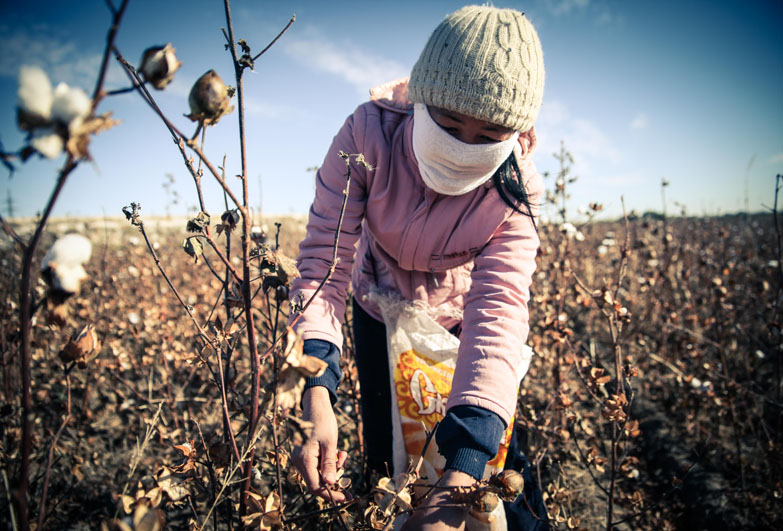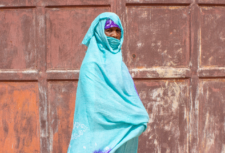Disclaimer: This article is more than 8 years old, and may not include the most up-to-date information or statistics. Please verify information with more recent sources as needed, and if you have any questions contact our Press Office.
New report documents state-led forced labour in 2015 Uzbekistan’s cotton harvest within World Bank project areas

9 March 2016
Human rights advocates from Uzbekistan and all over the world will deliver a petition signed by about 120,000 people from around the world to World Bank President Dr. Jim Yong Kim, calling on the Bank to suspend payments to the government of Uzbekistan until it stops using forced labour. The advocates will assemble outside the main entrance of the World Bank at 10:00 AM ET (15:00 PM GMT).
The petition delivery coincides with the release of a new report documenting why the World Bank should listen to calls from Uzbek civil society groups to suspend the loans.
The report, released by the Uzbek-German Forum for Human Rights (UGF), presents first-hand observations, interviews and documentary evidence that in 2015 the government of Uzbekistan forced more than a million citizens under threat of punishment to pick cotton and farmers to grow cotton for the state-run cotton enterprise. The Uzbek government’s use of forced labour violated its contracts with the World Bank for agricultural projects totaling more than $500 million, which required the government to abide by its own labour laws – including laws that ban the use of forced and child labour – in the areas where the World Bank projects were to operate.
As part of its agreement with the World Bank, the Uzbek government allowed the International Labour Organization (ILO) to conduct monitoring of forced and child labour in the 2015 cotton harvest. The ILO monitoring report found: (1) the practices of officials responsible for meeting cotton quotas did not change; (2) there were indicators of forced labour related to widespread organized recruitment of adults to pick cotton; and (3) public-sector workers in the education and health-care sectors were compelled to contribute labour or payments.
Video documentation from Anti-Slavery International confirmed many of these findings in interviews with forced labour victims. Their testimonies are presented in the following video:
The ILO report’s reaffirmation of the existence of forced labour and findings of the UGF report indicate that the Uzbek authorities violated their contractual commitment to the World Bank. With their leverage as donors and experts in labour and economic development, the World Bank and ILO are well positioned to pressure the Uzbek government to stop its use of forced labour, particularly if doing so would bring back suspended Bank funding.
Suspension of funding has precedent but would be a rare move for the Bank, which currently lacks standards that align with existing international human rights conventions. The activists, coalesced as the Cotton Campaign, are calling on the Bank to suspend finance to the Uzbek government for agriculture projects until it ceases its use of forced labour in the sector.
To hide its use of forced labour, the Uzbek government physically assaulted, detained and fabricated charges against human rights monitors while they documented forced labour in the cotton sector. Police arrested activists Elena Urlaeva and Malohat Eshankulova and subjected them to body-cavity searches. Police repeatedly detained, beat, and brought charges against Dmitry Tihonov, eventually forcing him into exile. Dmitry also lost his home office, burned down in an intentional fire by someone who also stole his human rights materials and research. Police also detained Uktam Pardaev for two months, and since his release in January officials have kept him under house arrest.
Update:
Anti-Slavery International alongside the partners from the Cotton Campaign coalition delivered the petition to the World Bank on the 9 March. The representative of the World Bank condemned forced labour, although he stopped short of committing to withdraw the funding to Uzbekistan.
We will be updating everyone with the developments as they arise.
The Cotton Campaign is a global coalition of labour, human rights, investor and business organizations coalesced to end forced labour of children and adults in the cotton sector of Uzbekistan. Find out more at www.cottoncampaign.org.





